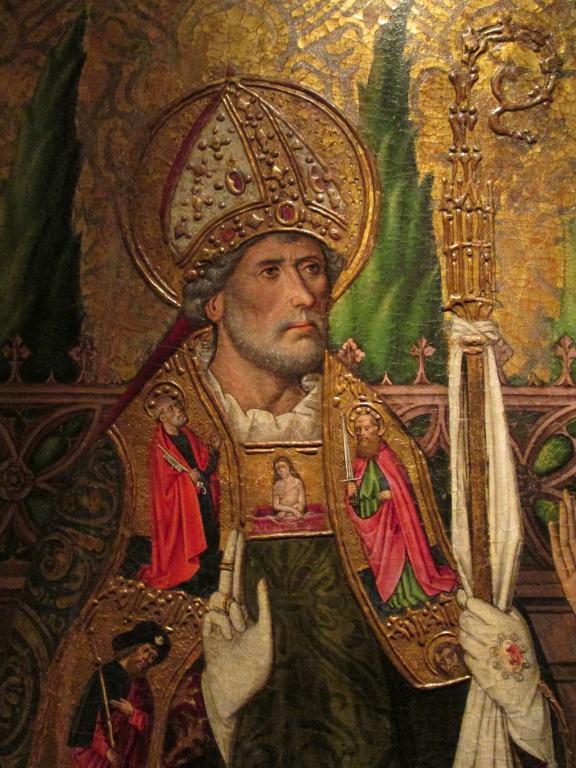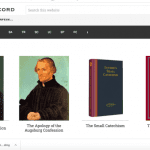In his inaugural address, Joe Biden quoted St. Augustine, who “wrote that a people was a multitude defined by the common objects of their love.” That’s a great line, but the president didn’t quite get the context right.
So observes Pete Domenich in the Federalist. President Biden was using the statement as an expression of unity. We Americans all love the same things–he mentioned opportunity, security, liberty, dignity, respect, honor, and truth–and we can resolve our polarization by the power of love.
But St. Augustine’s original statement was a criticism of nations for loving the wrong things. Domenich quotes the passage from City of God, Book XIX, Chapter 24:
But if we discard this definition of a people, and, assuming another, say that a people is an assemblage of reasonable beings bound together by a common agreement as to the objects of their love, then, in order to discover the character of any people, we have only to observe what they love. Yet whatever it loves, if only it is an assemblage of reasonable beings and not of beasts, and is bound together by an agreement as to the objects of love, it is reasonably called a people; and it will be a superior people in proportion as it is bound together by higher interests, inferior in proportion as it is bound together by lower.
According to this definition of ours, the Roman people is a people, and its good is without doubt a commonwealth or republic. But what its tastes were in its early and subsequent days, and how it declined into sanguinary seditions and then to social and civil wars, and so burst asunder or rotted off the bond of concord in which the health of a people consists, history shows, and in the preceding books I have related at large. And yet I would not on this account say either that it was not a people, or that its administration was not a republic, so long as there remains an assemblage of reasonable beings bound together by a common agreement as to the objects of love.
But what I say of this people and of this republic I must be understood to think and say of the Athenians or any Greek state, of the Egyptians, of the early Assyrian Babylon, and of every other nation, great or small, which had a public government. For, in general, the city of the ungodly, which did not obey the command of God that it should offer no sacrifice save to Him alone, and which, therefore, could not give to the soul its proper command over the body, nor to the reason its just authority over the vices, is void of true justice.”
The object of the Romans’ love was power and war, which led, St. Augustine says, to its fall. More deeply, he says, Rome–like the Greeks, Egyptians, and Assyrians–did not love God, which led them into debilitating vice and injustice.
Augustine’s statement, though, is a very powerful instrument for understanding a nation or a culture: What do the people love?
I would say that the object of love for Americans, historically, has been freedom. Even when Americans denied freedom to others, in the days of slavery, they demanded it for themselves. Furthermore, the slaves yearned for freedom, so this would be a common love.
Other countries, I have noticed, do not have the same passion for freedom that we Americans do. Instead, the objects of their love might be equality. Or security. Or tradition. Or community.
There is nothing wrong with loving these things, but, St. Augustine would say, unless the people also love God, their lesser loves can lead them astray. Our love for freedom has certainly led us also to moral license, contempt for legitimate authority, and self-centeredness. Those characteristic national vices are connected to our characteristic national virtues.
Of course, different people can love different things. Today, perhaps, there is less consensus about the objects of our love, and thus less sense of unity as a people. But I can still see commonalities that cross our political and social differences. We love technology, entertainment, and comfort. Perhaps we could add prosperity, pleasure, sex, and status.
The generation that fought in World War II and the Cold War seems to have had love for freedom, yes, but also faith and family. I don’t think those latter two loves define us as a people in the way they used to, though of course they are still the highest love for many individuals.
What else are some “objects of our love” that define us or have defined us as a people? Can we re-order our loves so that we learn to love what is better, or what is best? How can we do that?
Illustration: “St. Augustine” by Tomás Giner (1458) from DonCamillo, CC BY-SA 4.0 <https://creativecommons.org/licenses/by-sa/4.0>, via Wikimedia Commons














